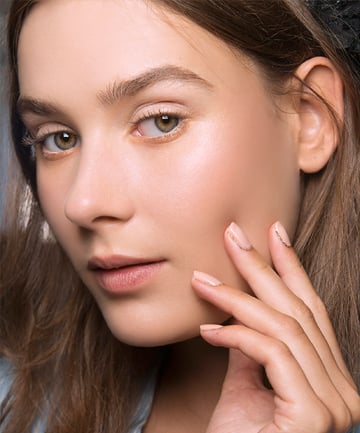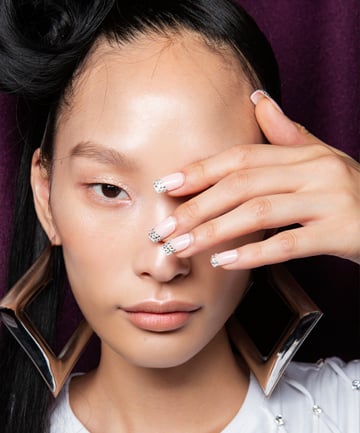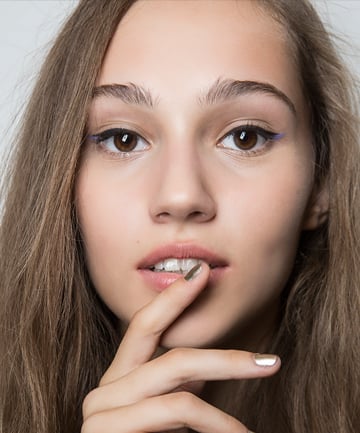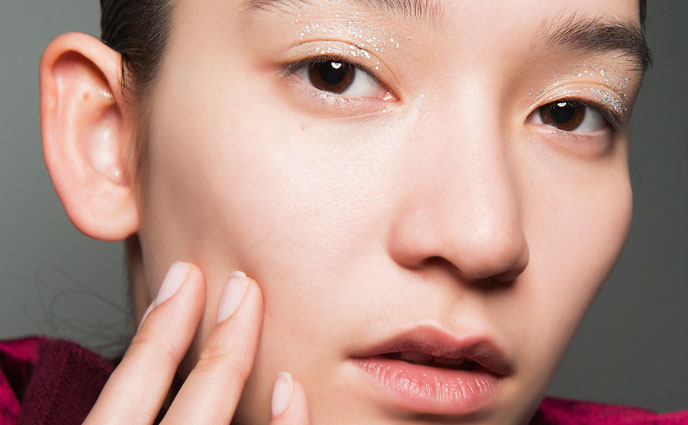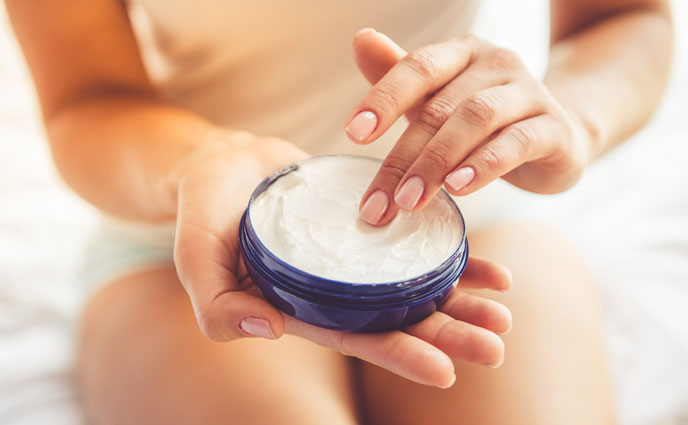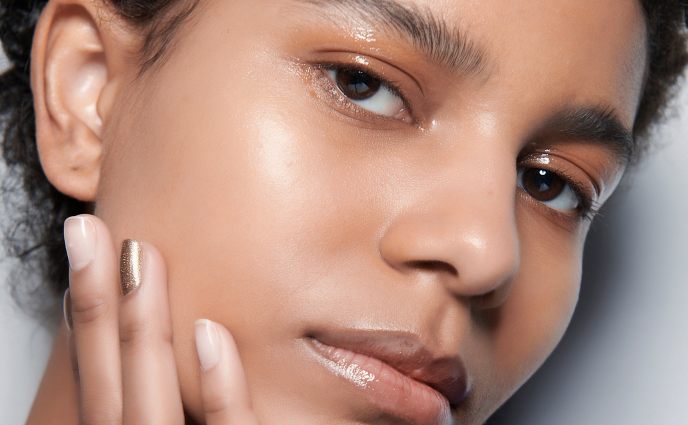This is a cyclical issue that really needs to be nipped in the bud. When your skin is dehydrated, it doesn't function as well as it ought to. It struggles to produce enough sebum and to sweat, which makes it harder for your body to eliminate gunk per usual. This, in turn, makes your skin more susceptible to external damage and can even worsen conditions such as eczema and psoriasis. When your skin barrier is damaged, it struggles even more to retain water.
"A compromised barrier not only weakens our immune system, but increases levels of inflammation," says Dr. Sarah Dolder, a board-certified dermatologist at Greenwich Point Dermatology. "Our skin is not only our protection from the world around us, but it is also our most external layer that is visible to the world. It reflects our health, our beauty and our vitality."
Image via Imaxtree
In addition to the risk of infection and inflammation associated with dehydrated skin, Dr. Dolder also stresses that dehydrated skin can leave our complexion looking dull and lackluster. This is a direct result of not getting enough moisture via water/diet, and from not consistently moisturizing.
Image via Imaxtree
Dullness isn't the only thing you have to worry about with dehydrated skin. That lack of moisture can also lead a worsening of fine lines and wrinkles. Though drinking water and wearing moisturizers won't make existing fine lines and wrinkles go away completely, they can visibly improve your appearance. Plumping skin ingredients — such as hyaluronic acid, which draws moisture from the air to your skin — can have an immediate visible effect. Drinking those daily eight glasses of water helps, too.
Image via Imaxtree
Aguilar says that one of the first signs of dehydrated skin is chapped lips, and you well-know how unpleasant that is! In general, though, it can make your skin feel itchy, sensitive, and tight.
"This itchy feeling can trigger an itch-scratch cycle, in which you are scratching and [further] compromising the skin barrier, leading to even more loss of water from the skin, as well as irritation, and a worsened itch," says Dr. Claire Y. Chang, a board-certified dermatologist at Union Square Laser Dermatology in New York City.
Image via Imaxtree


